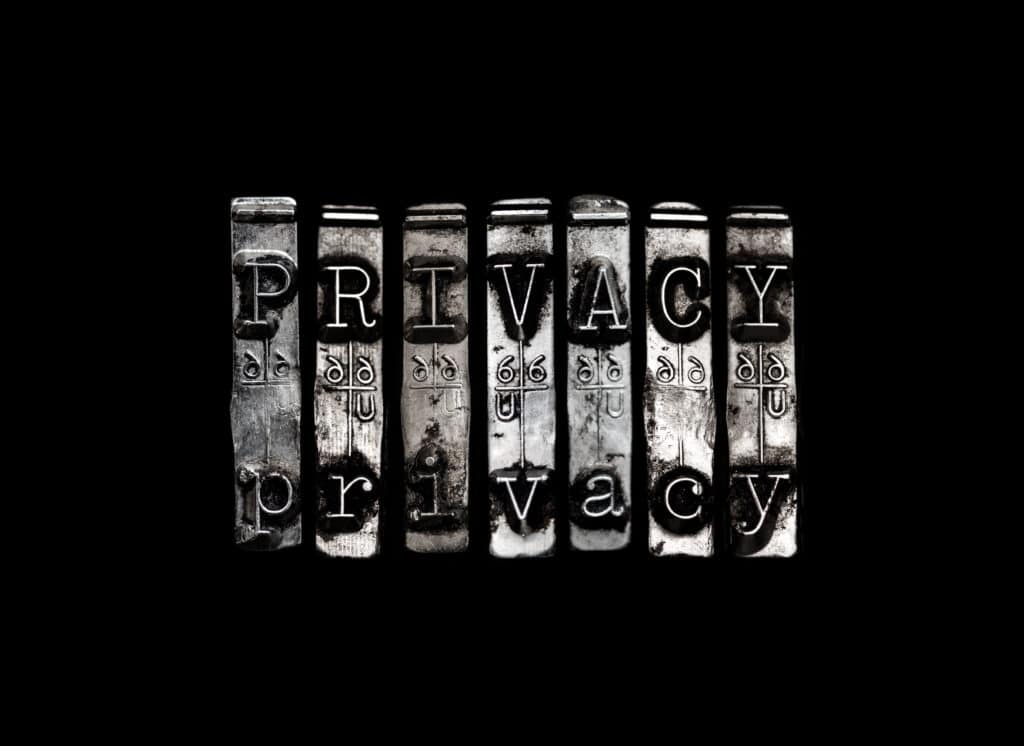Does Sending Someone Else's Personal Information via Email Constitute a Violation of Privacy?

There is no provision in the law called “privacy rights”. As society has developed, privacy rights have come to be recognized as “rights” in case law, and there can be lawsuits where the infringement of privacy, including emails, becomes an issue.
Article 230, Paragraph 1 of the Japanese Penal Code stipulates the elements of defamation, stating, “Anyone who publicly reveals facts and defames a person’s honor, regardless of whether the facts are true or not, shall be punished by imprisonment for up to three years or a fine of up to 500,000 yen.” However, since emails are often private correspondence between individuals, they often do not meet the “public” requirement for defamation. Therefore, when trouble arises, it is often the case that the infringement of privacy becomes the issue.
Related article: What are the conditions for suing for defamation? Explaining the requirements and the average compensation[ja]
Related article: Thorough explanation of privacy rights. What are the three requirements for infringement?[ja]
This may be a bit difficult to understand, but defamation only applies to acts that were “publicly” committed. And this “publicly” means “to an unspecified number of people”. A typical example is a bulletin board on the Internet. The content posted on the bulletin board can be read by anyone, so it is for an “unspecified number of people”. However, in the case of emails, the content of a certain email is only read by a specific few people who are the recipients of the email, so it cannot be said to be “for an unspecified number of people”, and therefore, there are many cases where defamation does not apply.
Even in such emails that are only read by a specific few, depending on the content, it could be considered an “invasion of privacy”. That is the point of this discussion.
Case of Privacy Infringement via Email

An instance occurred where it was disputed whether an email sent by life insurance company employee C to third party B, which contained personal information about A’s certification as a Level 3 mental disability that C learned from a consultation with acquaintance B about insurance enrollment, constituted defamation and privacy infringement.
A, who got to know C through B, learned that C was working as a life insurance solicitor at a life insurance company and consulted about insurance enrollment. At that time, A revealed that he had suffered from depression or mental illness in the past and had been certified as a Level 3 mental disability, as he was told that there were insurances that could not be enrolled if there were pre-existing conditions.
Afterwards, A criticized C’s descriptions in the diary that C publicly posted on the internet about their common hobby, outdoor life, and also spread defamatory content about C to third parties. Displeased with this, C sent an email to B, a mutual acquaintance, describing A as a “net-dependent person who cannot adapt to society” and a “person lacking common sense”, and also mentioned that A had been certified as a Level 3 mental disability.
Upon learning this, A filed a lawsuit against C seeking damages for defamation and privacy infringement. However, after the claim was dismissed at the Tokyo Summary Court, A appealed. The court did not acknowledge defamation, stating that although the expression in question was included, “it was only sent to a specific acquaintance and was not placed in a state where a large number of third parties other than the appellant and the appellee could read it, so the sending of the above-mentioned emails by the appellee did not immediately lower the objective social evaluation of the appellant.” In other words, it was not a case of “publicly” indicating the facts.
On the other hand, regarding the infringement of privacy, the court stated:
“Such information related to privacy may infringe on the personal rights and interests of individuals depending on how it is handled, so it needs to be handled carefully. The appellee, who learned the personal information in question when consulted about insurance enrollment by the appellant, should not arbitrarily disclose it to others without the consent of the appellant. The act of the appellee, who conveyed the personal information in question to B, who is just a mutual acquaintance and has nothing to do with insurance enrollment, by sending an email, is not recognized as necessary, and it betrays the reasonable expectation of proper management of information related to privacy voluntarily provided by the appellant, and constitutes a tort as it infringes on the privacy of the appellant.”
Tokyo District Court, November 6, 2009 (2009) Judgment
The court acknowledged this, but stated, “The personal information in this case can be said to be highly confidential for the appellant, but on the other hand, the manner of privacy infringement is limited to sending an email to a specific acquaintance. The appellant had been talking to mutual acquaintances of the appellant and the appellee that he had suffered from depression or mental illness,” and therefore, the court deemed 30,000 yen as a reasonable amount for consolation money.
Even though the information about the illness is highly confidential, the amount of consolation money was low because the “manner of privacy infringement was limited to sending an email to a specific acquaintance” and B just happened not to know, but “the appellant had been talking to mutual acquaintances of the appellant and the appellee that he had suffered from depression or mental illness.”
Related article: Can disclosing disease information on the internet be considered a privacy violation?[ja]
Case of Emails Containing Content Based on Sexual Interest or Desire

There have been cases where a woman has claimed to have suffered significant mental and physical damage due to receiving malicious emails containing sexual harassment and being persistently stalked. She sought compensation for emotional distress based on the tortious act. She initially filed for mediation with the Tokyo Summary Court, claiming mental distress caused by the emails, but the mediation ended unsuccessfully. Consequently, the appellant brought the case to the Tokyo District Court.
Although the story is full of contradictions and questions, the female appellant (35 years old) and the male defendant (42 years old) met at a test supervision job site where they were both dispatched from the same staffing agency. The defendant gave the appellant a business card with his mobile phone email address on it. The appellant sent an email to the defendant’s email address, which led to them exchanging emails. Over the course of about half a month, approximately 120 emails were sent from the defendant to the appellant, and about 90 emails were sent from the appellant to the defendant.
The appellant claimed that during this time, malicious emails containing sexual harassment were sent. For example, in response to an email from the appellant stating that she was looking for a daily paid job, the defendant wrote, “If you’re looking for a short-term, daily paid job, I think XX would be ideal. It’s 10,000 yen for checking mobile devices. No compensated dating.” When the appellant asked what “No compensated dating” meant, the defendant replied, “Please forgive me if I caused any misunderstanding.” They continued to exchange five emails each on the same day.
On another day, the defendant sent an email saying, “I tried to get into a love hotel in Shibuya and forced a kiss, but she resisted fiercely, saying, ‘No, I can’t. I’m still devoted to my husband…’ I had to retreat in regret → self-destructive eroticism.” This was in response to an email from the appellant saying, “I used to date a former JAL international flight attendant, three years ago…” The appellant replied, “Is that so?” and the defendant wrote, “We used to call each other ‘sister’ and ‘Y-kun.’ I tried to get into a love hotel in Shibuya and forced a kiss, but she resisted fiercely, saying, ‘No, I can’t. I’m still devoted to my husband…’ I had to retreat in regret → self-destructive eroticism.” They continued to exchange nine emails from the defendant and six emails from the appellant on the same day.
The court also found that “it cannot be recognized that the appellant strongly rejected these emails or that she began to reject the defendant after these emails, and it can be recognized that the defendant could not perceive that the appellant was rejecting his emails.” Furthermore, since the two had only met face-to-face twice, the court ruled that there was no stalking behavior.
Considering the content and manner of the sexual emails in question, the content, manner, and number of the defendant’s sent emails, the content, manner, and number of the plaintiff’s sent emails, and the purpose of the defendant’s sent emails inferred from these, it cannot be recognized that the sending of the defendant’s emails exceeded the socially acceptable range and constituted an illegal act.
Tokyo District Court, September 30, 2009 (Heisei 21) Judgment
The court dismissed the appellant’s claim. In this case, the invasion of privacy was not recognized, but the judgment states,
The act of sending an email containing content based on sexual interest or desire against the recipient’s will should be considered a tortious act that infringes on the recipient’s sexual freedom, honor, privacy, and other personal rights when it exceeds the socially acceptable range in light of the purpose, content, manner, etc. of the email, the degree and manner of the recipient’s rejection, etc.
Ibid.
Even in one-on-one emails, sending an email containing content based on sexual interest or desire against the recipient’s will could constitute a tortious act that infringes on the recipient’s sexual freedom, honor, privacy, and other personal rights if it exceeds the socially acceptable range in light of the purpose, content, manner, etc. of the email, the degree and manner of the recipient’s rejection, etc. Although this is a lower court decision, it is a noteworthy ruling.
Although no such act was committed in this case, it is pointed out that sending emails containing content based on sexual interest or desire that the recipient has rejected may constitute an invasion of privacy, even if one thinks, “It’s just an email” or “It probably won’t be made public.”
Invasion of Privacy through Email Reproduction

A manga artist, who belonged to a doujinshi circle called “a”, was active under the pen name “B”, and had set up a webpage for activities as “B” with a contact email address, had a webpage titled “B Verification Summary Wiki” created by an unknown person. A request for disclosure of sender information was made to the transit provider in order to claim damages based on defamation and invasion of privacy for the articles and emails posted and reproduced here.
The court first identified that the subject of each article was the plaintiff, and then acknowledged that in the articles posted on “B Verification Summary Wiki”, there were expressions that gave the impression that B was plagiarizing other people’s works, each article indicated the fact that B was plagiarizing third-party works, and this was lowering B’s social evaluation.
Related article: What is the decline in social evaluation necessary for defamation? Explained by a lawyer[ja]
Also, the emails that this manga artist sent to a specific individual and the emails that the specific individual sent to the plaintiff were reproduced on “B Verification Summary Wiki”, and regarding this,
Articles 5 to 15 in this case are postings of email exchanges between the plaintiff and a specific individual (Article 10 in this case is attached to Article 9) on this webpage. The content of emails exchanged between individuals is information that is not usually intended to be widely made public, and indeed, the plaintiff clearly stated this in the email (Exhibit 1-7). And since there is no rational reason to make these public on the internet, the act of making them public must be considered an infringement of the plaintiff’s privacy rights (the right to control one’s own information).
Tokyo District Court, July 17, 2013 (2013) Judgment
Recognizing the invasion of privacy, the court ordered the disclosure of sender information.
This is a judgment that recognizes the “right to control one’s own information”, which decides whether or not to make public the “information that is not usually intended to be widely made public” in emails exchanged between individuals, as a privacy right.
Related article: What is a “request for disclosure of sender information” to identify the person who posted?[ja]
Related article: Defamation on the Internet and Invasion of Privacy[ja]
Summary
If you suspect that your privacy has been violated through email, it is advisable to consult with an experienced attorney as soon as possible. Privacy violations via email are similar to harassment, and in many cases, the perpetrator may not be aware of their actions. Therefore, if left unaddressed, the situation could potentially escalate. It could even develop into more malicious behavior, such as stalking, where the perpetrator continues to send messages despite the recipient’s clear discomfort. In July 2013 (Heisei 25), the Japanese Anti-Stalking Law was revised to include persistent emails as a form of stalking, thus classifying it as a criminal act.
Related article: What is Internet Stalking? Explaining the Countermeasures[ja]





















